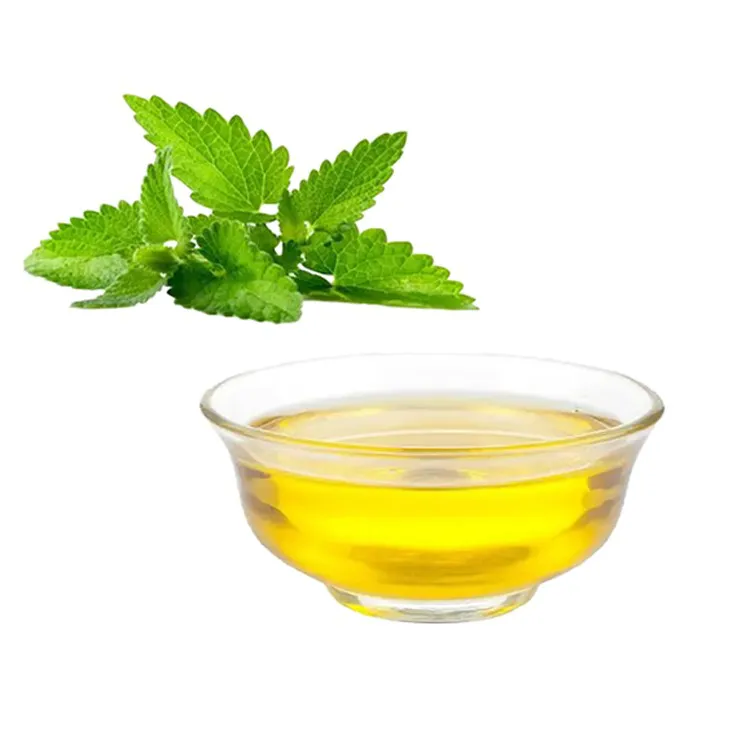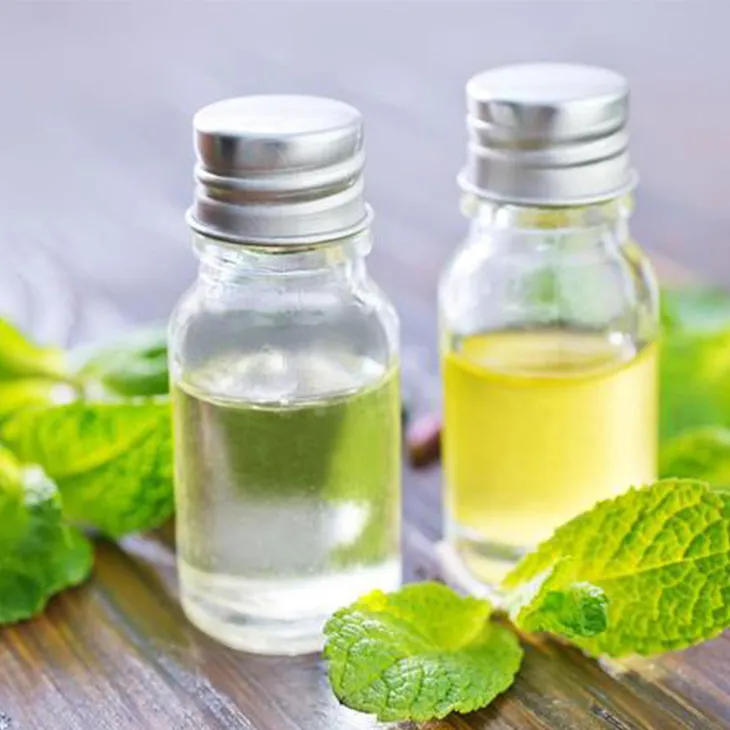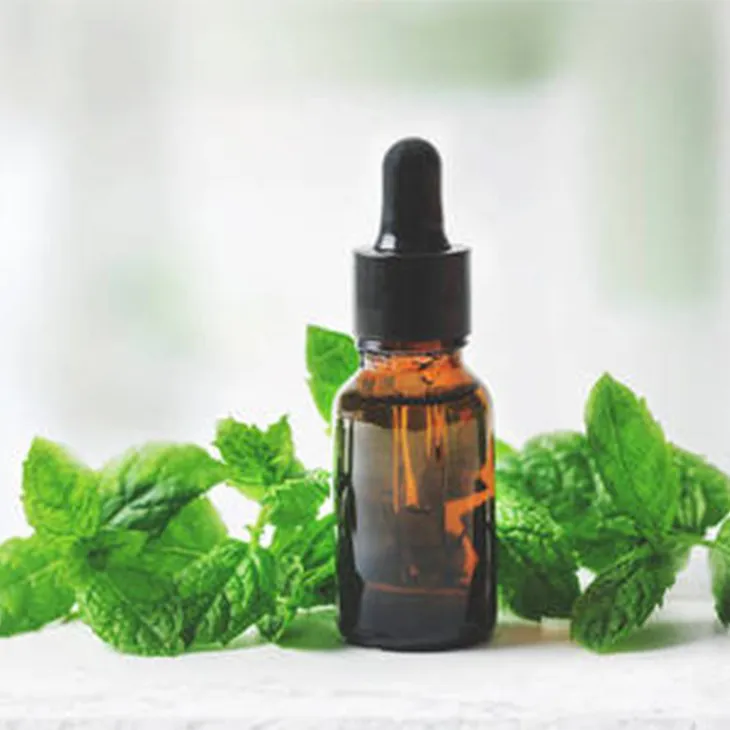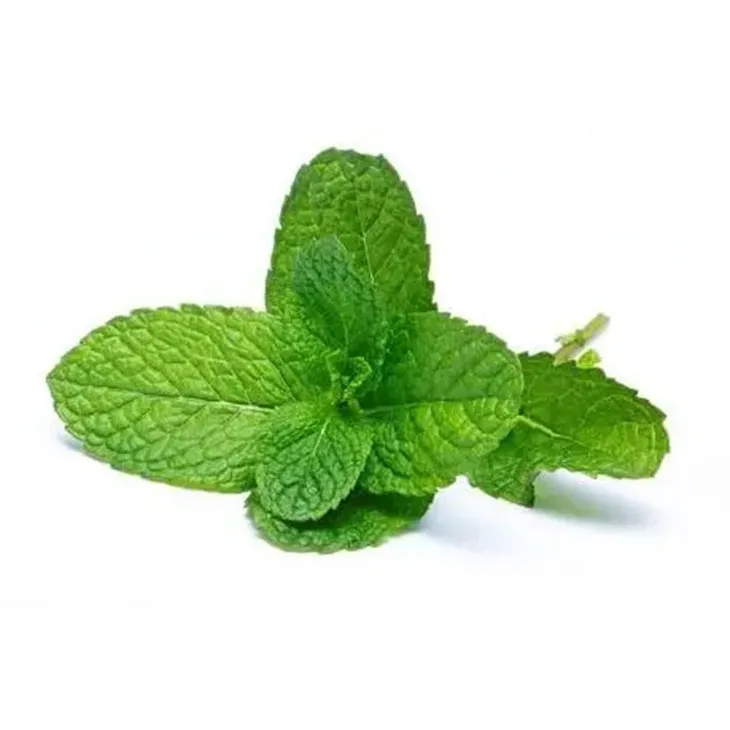- 0086-571-85302990
- sales@greenskybio.com
All about Peppermint Oil.
2024-12-10

Introduction to Peppermint Oil
Peppermint Oil is a remarkable natural product that has been used for centuries for various purposes. It is obtained through the process of extraction from different species of the mint plant. The mint plant, known for its characteristic fresh and cool aroma, contains a wealth of chemical components within its leaves, which are concentrated in the form of Peppermint Oil during extraction.

The Chemical Composition of Peppermint Oil
Peppermint oil is rich in several important chemical compounds. Menthol is one of the most prominent components, which is responsible for the cooling sensation that peppermint oil imparts. It also contains menthone, cineole, and various esters. These components work together to give peppermint oil its unique properties both in terms of its aroma and its physiological effects on the human body.

The Aroma of Peppermint Oil: Invigorating and Relaxing
The fragrance of peppermint oil is truly captivating. It has a dual nature - being both invigorating and relaxing at the same time. This makes it a highly sought - after ingredient in the field of aromatherapy.
Effects on the Nervous System
When used in aromatherapy, the aroma of peppermint oil can have a profound impact on the nervous system. It has the ability to reduce anxiety levels and promote a general sense of well - being. Inhaling the scent of peppermint oil can help to clear the mind, increase focus, and relieve stress. This is especially beneficial in today's fast - paced and often stressful world.

Health Benefits of Peppermint Oil
Oral Health
Peppermint oil offers significant benefits for oral health. Its antimicrobial properties are of particular importance. It can effectively inhibit the growth of harmful bacteria in the mouth. This helps in preventing various oral problems such as bad breath, tooth decay, and gum diseases. Many oral care products, including toothpastes and mouthwashes, incorporate peppermint oil for its antibacterial and refreshing qualities.
Relief from Menstrual Cramps
In traditional medicine, peppermint oil has been used to ease menstrual cramps. It has anti - spasmodic properties that can help to relax the uterine muscles, thereby reducing the pain and discomfort associated with menstruation. There are several ways in which peppermint oil can be used for this purpose, such as through topical application or inhalation.
Digestive Aid
Peppermint oil is also known to be beneficial for the digestive system. It can help to relieve symptoms of indigestion, such as bloating, gas, and stomach cramps. When taken in the appropriate form (usually diluted), it can stimulate the flow of digestive juices and promote proper digestion. It may also have a calming effect on the digestive tract, reducing spasms and discomfort.

Peppermint Oil in the Commercial Arena
Perfumes and Toiletries
The appealing scent of peppermint oil makes it a popular ingredient in the production of perfumes and toiletries. In perfumes, it adds a fresh, clean, and slightly cool note that can be both alluring and refreshing. In toiletries such as soaps, body washes, and lotions, it not only provides a pleasant fragrance but can also offer a cooling and soothing sensation on the skin.
Hair Care Products
Peppermint oil is also finding its way into hair care products. It can help to stimulate the scalp, promoting blood circulation. This, in turn, may contribute to healthier hair growth. Additionally, its antimicrobial properties can help to keep the scalp clean and free from dandruff - causing fungi and bacteria.
Peppermint Oil in the Food Industry
Flavor Enhancer
In the food industry, peppermint oil is a favored flavor enhancer. It is used in a variety of products such as ice creams, where it adds a refreshing and cool flavor. In herbal teas, it imparts a pleasant minty taste and aroma, which can be both soothing and invigorating. It is also used in confectionery items like candies and chewing gums to provide a minty flavor that is widely loved.
Food Preservation
Beyond its role as a flavor enhancer, peppermint oil may also have potential applications in food preservation. Due to its antimicrobial properties, it could potentially be used to inhibit the growth of spoilage - causing microorganisms in certain food products. However, more research is needed in this area to fully understand its effectiveness and safety for this purpose.
How to Use Peppermint Oil
Topical Application
When using peppermint oil topically, it is crucial to dilute it properly. This is because undiluted peppermint oil can be too strong and may cause skin irritation. A common dilution ratio is a few drops of peppermint oil in a carrier oil such as coconut oil or almond oil. Topical application can be used for various purposes, such as relieving muscle pain or headaches. For example, gently massaging the diluted peppermint oil on the temples can provide relief from a headache.
Inhalation
Inhalation is another popular method of using peppermint oil. This can be done through the use of a diffuser, where a few drops of peppermint oil are added to water and the device disperses the aroma into the air. Inhaling the vapor can help to clear the sinuses, relieve congestion, and have a calming effect on the mind. Another way of inhalation is by adding a drop or two of peppermint oil to a handkerchief or tissue and inhaling directly.
Internal Use
Internal use of peppermint oil should be done with extreme caution. In some cases, it may be used in very small amounts, usually in the form of enteric - coated capsules, for digestive issues. However, it is important to consult a healthcare professional before using peppermint oil internally, as it can have potential interactions with medications and may not be suitable for everyone.
Precautions and Side Effects of Peppermint Oil
While peppermint oil has many benefits, it is also important to be aware of the precautions and potential side effects. Skin Sensitivity: As mentioned earlier, undiluted peppermint oil can cause skin irritation in some individuals. People with sensitive skin should be especially careful when using it topically. Allergic Reactions: Although rare, some people may be allergic to peppermint oil. Symptoms of an allergic reaction may include skin rashes, itching, or difficulty breathing. If any of these symptoms occur, use of the oil should be discontinued immediately and medical attention sought. Interactions with Medications: Peppermint oil may interact with certain medications, particularly those related to the digestive system or the liver. For example, it may affect the absorption or metabolism of some drugs. It is crucial to inform your doctor if you are using peppermint oil, especially if you are taking any medications.
Conclusion
Peppermint oil is a multi - faceted substance with a wide range of uses. From its aromatic properties in aromatherapy to its health benefits, commercial applications in various industries, and its potential in food preservation, it has much to offer. However, proper usage and awareness of its potential side effects are essential to fully enjoy its benefits. With further research, it is likely that more applications and benefits of peppermint oil will be discovered in the future.
FAQ:
What are the main components of peppermint oil?
Peppermint oil is extracted from mint species and contains various valuable components, though specific main components typically include menthol, which gives it many of its characteristic properties, among others.
How does peppermint oil reduce anxiety in aromatherapy?
The invigorating and relaxing fragrance of peppermint oil interacts with the body's olfactory system when used in aromatherapy. This interaction can send signals to the brain that help reduce the body's stress response, thereby reducing anxiety and promoting a sense of well - being.
Can peppermint oil really prevent oral problems?
Yes, it can. Peppermint oil has antimicrobial properties. These properties enable it to inhibit the growth of harmful bacteria in the mouth, which are often the cause of various oral problems.
How is peppermint oil used to ease menstrual cramps in traditional medicine?
In traditional medicine, peppermint oil may be applied topically (for example, in a diluted form on the lower abdomen) or inhaled. The active components in peppermint oil are thought to have a relaxing effect on the smooth muscles in the uterus, which can help to relieve menstrual cramps.
Why is peppermint oil so popular in the perfume and toiletries industry?
Peppermint oil has an appealing scent. This unique and refreshing fragrance makes it a desirable ingredient in the production of perfumes and toiletries. It can add a fresh, clean, and invigorating note to these products.
Related literature
- The Chemical Composition and Biological Activity of Peppermint Oil"
- "Peppermint Oil: Therapeutic Uses and Health Benefits"
- "Peppermint Oil in the Food and Cosmetic Industries"
- ▶ Hesperidin
- ▶ citrus bioflavonoids
- ▶ plant extract
- ▶ lycopene
- ▶ Diosmin
- ▶ Grape seed extract
- ▶ Sea buckthorn Juice Powder
- ▶ Beetroot powder
- ▶ Hops Extract
- ▶ Artichoke Extract
- ▶ Reishi mushroom extract
- ▶ Astaxanthin
- ▶ Green Tea Extract
- ▶ Curcumin Extract
- ▶ Horse Chestnut Extract
- ▶ Other Problems
- ▶ Boswellia Serrata Extract
- ▶ Resveratrol Extract
- ▶ Marigold Extract
- ▶ Grape Leaf Extract
- ▶ blog3
- ▶ blog4
- ▶ blog5
-
Pure 85% Tomentil Extract.
2024-12-10
-
Aguaje Extract
2024-12-10
-
Longan Extract
2024-12-10
-
Curcumin
2024-12-10
-
Pomegranate Extract
2024-12-10
-
Acerola Juice Powder
2024-12-10
-
Andrographis Paniculata Extract Powder
2024-12-10
-
Eyebright Extract
2024-12-10
-
Bayberry Extract
2024-12-10
-
Buckthorn bark extract
2024-12-10
-
Tongkat Ali Extract Powder
2024-12-10





















